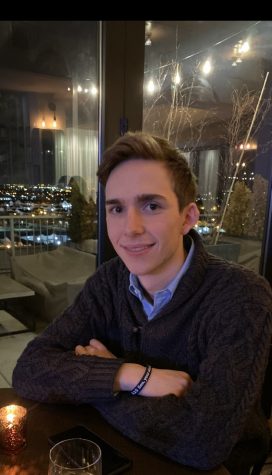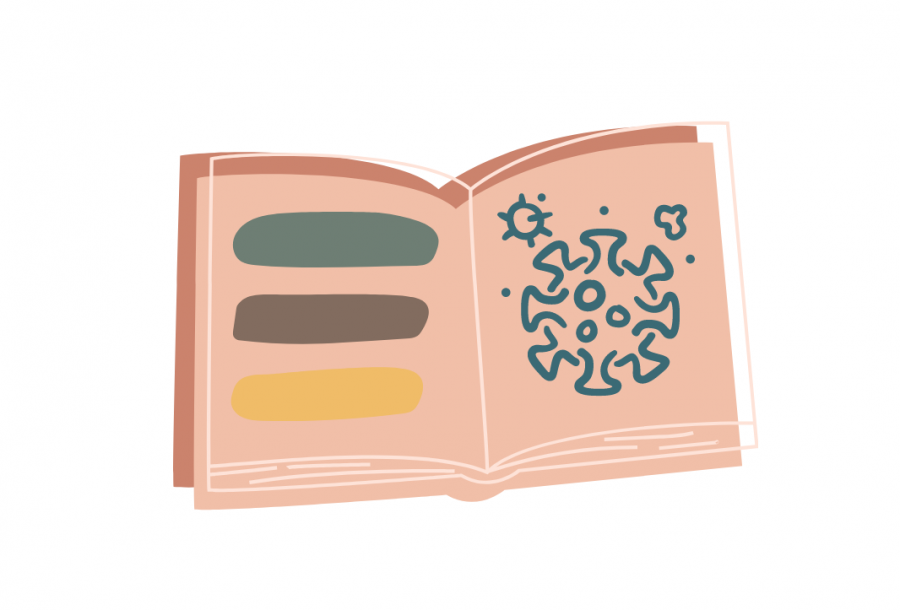SLU Courses and COVID-19
Since SLU first transitioned to virtual learning last March, the COVID-19 pandemic has upended almost every traditional method of teaching and learning across all majors and colleges. And while it is widely recognized that virtual learning is no substitute for face-to-face interaction, tools like Zoom and other creative means of content delivery have allowed learning at SLU to persist and even to thrive during the pandemic.
As the pandemic has stretched on, there have been opportunities, across all colleges and disciplines, to incorporate the COVID-19 pandemic into course content and material and to draw on insights reached in the classroom to better understand the current moment. Predictably, courses with a STEM basis have had ample opportunity to study COVID-19, in classes on virology and epidemiology, for example. But disciplines in the humanities in a diverse range of fields have also studied aspects of the pandemic in the classroom and the insights reached are indispensable towards understanding the pandemic and the world it has made.
If the pandemic has reaffirmed one thing, it is that the sharp divisions between academic disciplines that are often most accentuated within a university setting are less useful outside of it, especially in times of crisis. For instance, questions early in the pandemic about the most effective way to stop the spread of COVID-19 from an epidemiological standpoint couldn’t be separated from questions relating to the economic or social impact of lockdowns or political questions about the responsibilities the government has to its citizens and their welfare. The rapid development of vaccines, including the cutting edge mRNA technology, were rightly hailed as extraordinary scientific achievements. But there remain other vaccine related questions, about inequalities in access, or the morality of patent laws on life-saving technology, that science cannot answer alone. To address these complex questions, an interdisciplinary approach is necessary, and as a Jesuit university, SLU is well attuned to the importance of this type of interdisciplinary collaboration.
The University News spoke to three professors representing three different disciplines—Anthropology, English and History—in the humanities, all of whom have integrated the COVID-19 pandemic into their class material in some capacity. They shared insights that they and their students have reached so far this semester and the interdisciplinary approaches they have taken to do so.
Amy Cooper, Ph.D., a professor of anthropology and sociology, teaches an introduction to Medical Anthropology course this semester. While she stopped short of including a specific module about COVID-19 to the syllabus, Cooper emphasized that nearly all of the course themes could be readily used to understand our current circumstances, and she encourages her students to make these connections whenever possible.
Listing some of the topics covered in her Medical Anthropology course that offer parallels for our current moment, Cooper, said: “We study how involuntary migration and poverty shape experiences of medical treatment for Hmong refugees in the U.S., how racism and class inequalities affect people’s attempts to build families through high-tech medical interventions in Ecuador, and how government policies meant to promote health actually dehumanize and traumatize generations of indigenous communities in the Canadian Arctic.”
As Cooper elaborated, one of the central insights she hopes to communicate in her course is that illness is not strictly the result of a biological process, rather “health and illness are shaped by social, political, and economic inequalities, adding: “The way we organize society has created vast inequalities and hugely differential health outcomes, and a pandemic can exacerbate these inequalities when institutions don’t intervene to stop it.”
Ellen Crowell, Ph.D., a professor of English, teaches a unique senior English seminar called “Reading AIDS in the Time of COVID.” Through weekly engagement with literature, film and music produced during the height of the AIDs crisis, students in Crowell’s class ask themselves each week: “When we explore how and why artists addressed the horrors of AIDS (institutionalized hatred, racism, homophobia, healthcare inequity, politicized medical treatment, the restructuring of human intimacy, etc.) what do we see about our own pandemic moment?”
The idea for the class came, Crowell said, as she was running on the SLU track. While running, Crowell began listening closely to a song from the 1980s and thought: “This song was about AIDS and I didn’t notice that then.” Another thought quickly followed: “The only reason I am noticing this now, is because we are again living in a pandemic.”
Midway through the semester, Crowell said, she and her students have thought about how “pandemics affect our collective sense of both the individual body,” including “how we deal with connection, community, intimacy while navigating biological threat” as well as “the national body, how fear of biological threat impacts issues of equity, xenophobia, and exclusionary nationalism.”
A phenomenon that most people are no doubt familiar with is that as the pandemic has gone on, things which were once incredibly bizarre—extended isolation from friends and family, conducting meetings and ceremonies over Zoom, for example—have started to feel somewhat normal. But, Crowell said, “this is not normal—and in order to feel the strangeness, we need to get some distance; we need to attune ourselves to the atmosphere of now by immersing ourselves in another atmosphere.”
Another class, taught by George Ndege, Ph.D., a professor of African history, also seeks to provide insight into our current pandemic moment through the study of the past. In his class “Peoples and Pandemics in History,” Ndgege explores various responses to pandemics in the past, drawing parallels between the challenges and complexities faced by those societies and our own. Ndege and his students have examined pandemics in the context of the Scientific Revolution and Enlightenment, the Industrial Revolution, Imperialism and the modern era, focusing on the ways that different societies have dealt with disease, ranging from discoveries of new scientific treatments for disease to the creation and implementation of public health policies.
Naming just a few of the many projects his students are working on, Ndege said: “students are working on comparing public health responses to cholera epidemics in different world regions” as well as analyzing the “logistical response of the Red Cross to various pandemics across the globe.” Other subjects of study include “the psychological impact of polio on American children in the 1950s, the evolution of dentistry, midwifery and nursing across in specific periods and regions, and the cultural and economic impacts of the cholera outbreak in 1854 London.”
Ndege added: “The current global pandemic of Covid-19 has brought to the forefront the complexities that scientists, the medical community, pharmaceutical companies and public health officials face when dealing with catastrophic outbreaks of disease” and he affirmed the importance of the study of the past for recognizing and addressing these complexities.
Your donation will support the student journalists of Saint Louis University.





